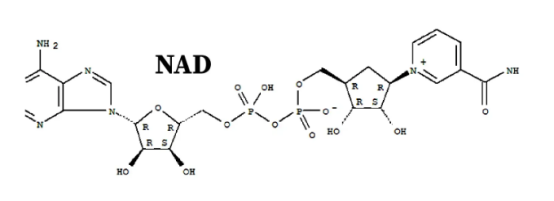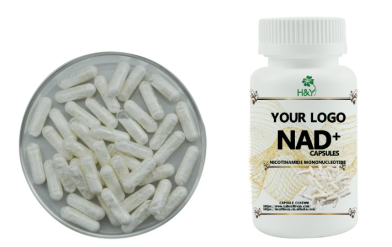Explore and understand the effects of NAD+ on the human body
09/23/2025 17:13:15
nicotinamide adenine dinucleotide
NAD+, the full name of which is nicotinamide adenine dinucleotide, is the most important coenzyme in the human body, also known as coenzyme I. It participates in thousands of redox enzyme reactions in the human body and is an indispensable substance for the metabolism of every cell. Including energy metabolism, chromosome stability, DNA repair and activation of longevity protein sirtuins. In a variety of cellular metabolic reactions, NAD+ molecules play an important role and are an important support for cells to maintain vitality.

Studies have shown that the NAD+ content in the human body continues to decrease throughout a person's life. From adolescence to mid-adulthood, the original value drops to about half. The lower the NAD+ level in the body, the higher the risk of many chronic diseases and the faster aging.
NAD+ plays a vital role in the human body. It is necessary to maintain the body's youthfulness and normal physiological functions. Maintaining a high NAD+ level is of great significance to human health.
Anti-aging
NAD+ maintains chemical communication between the cell nucleus and mitochondria. Weakened communication is an important cause of cell aging. NAD+ can remove the increasing number of erroneous DNA codes during cell metabolism, maintain normal gene expression, maintain normal cell function, and slow down the aging of human cells.
DNA repair
NAD+ is a necessary substrate for the DNA repair enzyme PARP, and has a significant impact on DNA repair, gene expression, cell development, cell survival, chromosome reconstruction and gene stability.
Activate longevity proteins
Sirtuins are often referred to as the longevity protein family, which plays an important regulatory role in cell functions, such as inflammation, cell growth, circadian rhythm, energy metabolism, neuronal function, and stress resistance, and NAD+ is an important enzyme for synthesizing longevity proteins. Activating all 7 longevity proteins in the human body plays an important role in cell resistance, energy metabolism, preventing cell mutation, apoptosis and aging.

Energy provision
Catalyzes the generation of more than 95% of the energy required for life activities. The mitochondria in human cells are the power plants of cells. NAD+ is an important coenzyme for generating energy molecules ATP in mitochondria, converting nutrients into energy required by the human body.
Promote angiogenesis
Blood vessels are indispensable tissues for life activities. As we age, blood vessels gradually lose their flexibility, become harder, thicker, and narrower, causing "arteriosclerosis". NAD+ can increase the activity of elastin in blood vessels, thereby maintaining the elasticity of blood vessels and maintaining the health of blood vessels.
Promote metabolism
Metabolism is the sum of various chemical reactions in the body. The body will continuously exchange substances and energy. When this exchange stops, the life of the body will end.
Professor Anthony of the University of California and his research team found that NAD+ can effectively improve the slowdown of cell metabolism associated with aging, thereby improving people's physical health and prolonging life.
Protect heart health
The heart is the most important organ of the human body, and the level of NAD+ in the body plays a vital role in maintaining the normal functioning of the heart. The reduction of NAD+ may be related to the occurrence mechanism of many cardiovascular diseases, and a large number of basic studies have also confirmed the role of NAD+ supplementation in heart disease.




